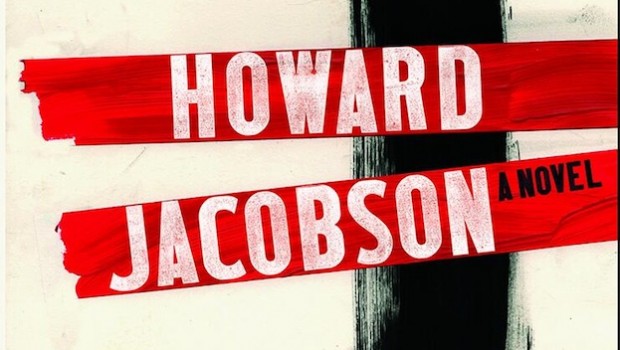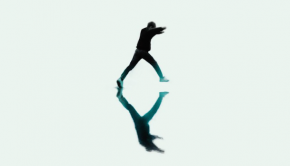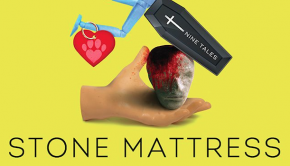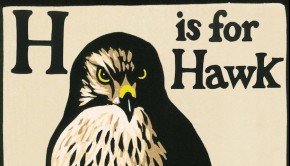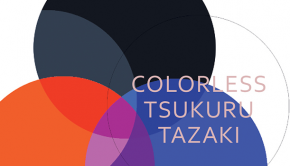J by Howard Jacobson
| Press reviews | Buy the book | Have your say |
Blurb: Set in the future, a world where the past is a dangerous country, not to be talked about or visited, J is a love story of incomparable strangeness, both tender and terrifying. Two people fall in love, not yet knowing where they have come from or where they are going. Kevern doesn’t know why his father always drew two fingers across his lips when he said a world starting with a J. It wasn’t then, and isn’t now, the time or place to be asking questions. Ailinn too has grown up in the dark about who she was or where she came from. On their first date Kevern kisses the bruises under her eyes. He doesn’t ask who hurt her. Brutality has grown commonplace. They aren’t sure if they have fallen in love of their own accord, or whether they’ve been pushed into each other’s arms. But who would have pushed them, and why? Hanging over the lives of all the characters in this novel is a momentous catastrophe – a past event shrouded in suspicion, denial and apology, now referred to as What Happened, If It Happened. J is a novel to be talked about in the same breath as Nineteen Eighty Four and Brave New World, thought provoking and life changing. It is like no other novel that Howard Jacobson has written.
(Jonathan Cape, 2014)
John Sutherland, The Times
“One thing it’s hard to miss is Jacobson’s grim thesis that British anti-Semitism is distinctively British. Orwell identified England’s defining characteristic as “gentleness”. Central to J is the fable of the frog. Dump one in boiling water, it will jump out. Heat the water gently and, bingo, you’ll kill your frog. That’s how the English solve their frog problems. Gently as she goes. Jacobson has written a subtle, topical, thought-provoking and painfully uncomfortable novel.”
John Burnside, The Guardian
“To say J is unlike any other novel Jacobson has written would be misleading: the same ferocious wit runs throughout, while the minutiae of male-female relations are as sharply portrayed as ever. Nevertheless, the comparisons that will inevitably be made with earlier dystopian visions –George Orwell, of course, and the Aldous Huxley of Brave New World, but also Yevgeny Zamyatin’s We – will not be difficult to justify. Less obvious, but equally interesting parallels might be found in cinema, by comparing J to Michael Haneke’s Caché, with its similarly guilty and muddled sense of history, or David Lynch’s Lost Highway. Both films are shot through with an almost unbearable atmosphere of helpless paranoia: strangers spy on the lovers, false or incomplete memories prey on their minds, horrific violence erupts as if from nowhere.”
James Kidd, The Independent
“J is a snarling, effervescent and ambitious philosophical work of fiction that poses unsettling questions about our sense of history, and our self-satisfied orthodoxies. Jacobson’s triumph is to craft a novel that is poignant as well as troubling from the debris.”
Julius Purcell, The Financial Times
“In many ways a better novel than the 2010 Man Booker-winning The Finkler Question, J could, arguably, also be its sequel … In Finkler, Jewishness is linked to Treslove’s desire to resolve a lack in his life; in J, too, Jewishness, jazz and jokes are subtly associated with a kind of disrupting vitality without which art and life is so much white noise. Is such an ethnic association worryingly essentialist? What does the author himself think, or want us to think? A novelist “isn’t here to have opinions”, Jacobson once declared: “Our job is to submit opinion to the comic drama of ambiguity and contradiction”. If so, J carries out that job – to the letter.
Anthony Cummins, The Observer
“As a conspiracy yarn examining the manipulation of collective memory, Jhas legs, and it’s well worth its place on this year’s Man Booker longlist. But how troubled you are by it will depend on how serious you want to get; Jacobson, known as a comic novelist, isn’t joking this time, or not much anyway. An aside about boiling frog syndrome suggests that he wants J to be read as an alarm call to British Jews sleepwalking to their doom. He favours mystification over analysis when it comes to offering explanations for “what happened” – a sensible choice that nonetheless risks sounding histrionic when we’re required to accept that Jewish people incite an immutable bloodlust.”
Ian Sansom, New Statesman
“J confounds one’s expectations but confirms Jacobson’s reputation. It’s not a funny book, but then The Castle is not a funny book, The Devils is not a funny book, and The Plague is not a funny book – and these are clearly the kinds of models that Jacobson has in mind. Novels of import and ideas. Big books. Serious books. Jacobson turned 70 a couple of years ago. He may have started his career larking around in slapstick but J is no jeu d’esprit. J is also, uncharacteristically for Jacobson, not a book about being Jewish: it is, rather, a book about not being Jewish. Or not being Jewish enough.”
Nicholas Barber, The Daily Express
“A provocative dystopian fantasy to stack next to Kazuo Ishiguro’s Never Let Me Go, J has the kind of nightmarish twist which makes you want to turn back to page one immediately and read the whole thing again. On a first reading, much of the novel is perplexing, slow, and perversely humourless, given that it’s author is a revered humorist. However once you know the story’s secret, it takes on an electrifying power and when you get close to the end, it’s all worth it.”
Tim Martin, The Guardian
“Things get a bit tangled up, as Jacobson’s novel is trying to do several things at once: it wants to develop plausible characters in a ridiculous world, it wants to keep the reader guessing about the dimensions and consequences of its central atrocity, but it needs to make sure we don’t miss any satirical, ethical or political points either. This results in an uneven tone that can’t simply be ascribed to the neutered language of this future society, as the author commandeers or curtails his plot lines to stage Platonic talking-shops on the book’s central ideas … But these are minor complaints, since for most of the time Jacobson juggles his toxic material with enviable ease.”
Max Liu, The Independent
“If good novels leave readers not knowing what to think then J, which has been long-listed for this year’s Man Booker, is very good indeed. At times, I felt so baffled that the question of whether or not I liked it seemed irrelevant. The moral weight of passages about Ailinn and Kevern’s opaque pasts, and the mysterious “WHAT HAPPENED, IF IT HAPPENED”, dispelled initial reservations about the coherence of the narrative.”
David Grylls, The Sunday Times
“Jacobson has always been a fictional risk-taker. Here he takes risks by pushing to extremes concerns familiar from his earlier work: there is something disquieting about this book’s treatment of racial memory and ethnic bloodlines. He has also risked taking on an unfamiliar genre and the novel’s strongest parts are what it borrows from other dystopias: blackly prophetic humour, queasy uncertainty. Though scarcely “life-changing”, and flat compared with Huxley or Orwell, it is a formal departure for Jacobson.”
James Walton, The Spectator
“For the novel to carry the kind of punch he clearly intends, it needs to be at least imaginable that, within the next few years, the British people could rise up against the country’s Jews, who still occupy ‘a particular, even privileged place in the nation’s taxonomy of fear and loathing’. And that once they had, the crime could be buried. And that British Christians still define themselves against the Jews. Personally, I can’t imagine a novel based on the premise here being any better done. Nonetheless, for a book like this fully to achieve its aim, that premise has to be believable — and in J, for all Jacobson’s skill, it isn’t quite.”
Buy the book
Amazon | Foyles | Hive | Waterstones
OMNISCORE:

